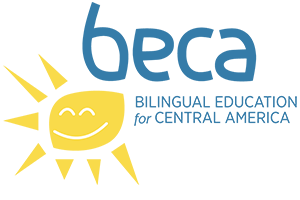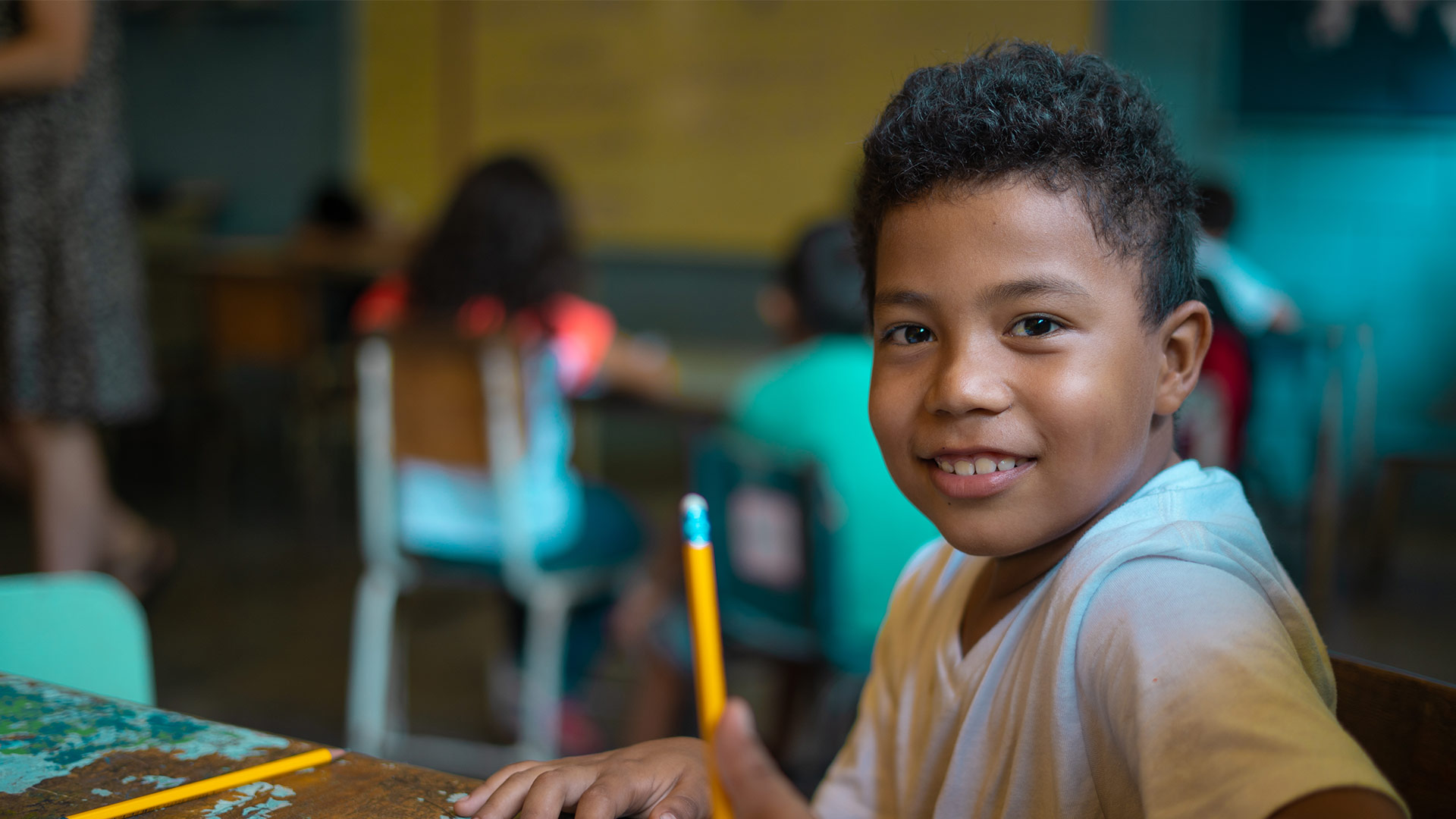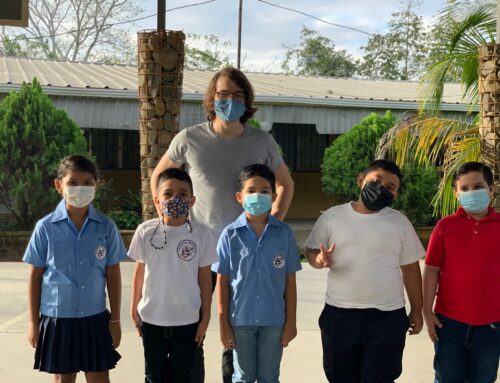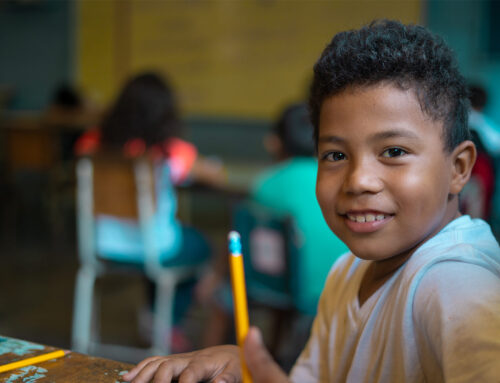How did you find out about BECA? What did your friends and family think when you told them you were moving to Honduras?
I found BECA while looking for ethical volunteer organizations in Latin America. When I told friends and family I was moving to Honduras, I got a wide range of reactions ranging from “where’s that?” to “let me come visit you!” I think the general consensus is that there isn’t a whole lot of knowledge about Honduras so people aren’t really sure what to think.
Describe your experience living in Honduras in one word.
Unpredictable. Life here is full of surprises.
How was your first day at school? How is that compared to where you are now?
I have very little memory of the first day of school. I remember it being a whirlwind of things to do and names to learn. Now, some eight weeks into the school year I feel like I’ve gotten to show more of my personality in the classroom and in return I’m seeing more and more of students’ personalities too. For example my seventh graders were having a particularly tough time focusing this one Friday afternoon so I walked through the aisles of the classroom and handed out “invisible magic focus hats” to each student. We put on our “magic focus hats” and talked about how they could not come off until 2:00 when school ended. Surprisingly, we had a productive day following the application of the “invisible magic focus hats.”
Describe your class. What is your favorite part of the day or class to teach?
I technically teach two grades per day. I teach 7th grade English and then 8th grade English, 8th grade art and 8th grade integrado (elective). My seventh graders have an insurmountable amount of energy and are enthusiastic about virtually any activity. My eighth graders can be a tough crowd, but as the year progresses they’re beginning to warm up to me.
What makes teaching at Santa Monica special?
Santa Monica is a unique and warm community! Santa Monica has this intense sense of community. Within the first couple weeks of school, students who weren’t mine were approaching me and asking me my name and what grade I taught. Now during recess a group of lower school students run up to me and ask me to teach them how to do cartwheels. There is a lot of love and appreciation for teachers at Santa Monica, which is priceless.
What is your favorite place that you’ve been in Honduras?
I’m a big fan of Utila! I’ve travelled to Santa Barbara, Tocoa, La Ceiba, and to Lake Yojoa. Copan and Tegucigalpa are on my list for this semester!
What have your students taught you this year?
So much! My students remind me to laugh in frustrating and discouraging times. They challenge me to think in ways that don’t come naturally to me. Ultimately, my students are the reason I’m here. So when chaos is erupting around me, my students unfailingly remind me why I’m here.
Where can you be found on a Saturday morning?
I have widely unexciting weekends on a whole. I sometimes go to the fruit market early to get my pick of the avocados.
What’s the funniest thing that’s happened outside of school?
My roommate and I started abbreviating words in Spanish as a running joke (for example aguacot=aguacate; ceboy=cebolla; gallets=galletas; papas frits=papas fritas). For some reason, we find it hilarious but every now and then we’ll say it to somebody who isn’t in on the joke. We say “Queremos 5 ceboy” at the fruit market when we want 5 onions and as you can imagine it leads to some confusion.
Did you have any preconceived notions about Honduras before you came down? How did those compare with what you found when you arrived?
I did not know a whole lot about Honduras before coming to Cofradia with BECA. Before I left I did some research about Honduras, but it was nothing compared to what day to day life is like here. One thing that I love about my experience in Honduras so far is how willing everybody I’ve met has been to welcome me into their home, community and culture. When I was staying with a host family they’d ask me if I tried a classic Honduran food and if I said no that’s what we had for breakfast the next morning.
What is the most challenging aspect of living in Honduras?
I think the hardest thing for me personally is working on my tolerance of ambiguity. As a newcomer to the myriad of cultures and identities that makeup “Honduran culture” it’s really easy to feel like you don’t know what’s going on or to feel like you’re never doing the right thing. That and I am a firm believer that you can never be fully prepared for the heat.
How would you describe the experience of working with BECA and living in Honduras for someone thinking about applying?
Be ready to sweat. But on a more serious note, living and working here comes with abundant obstacles. Teaching in general is emotional, gritty, and exhausting work. Be ready to be uncomfortable and unsure and confused at times. Be ready to be homesick for things you never thought you’d care much about (I miss carpeting so much!). But if you’re anything like me, you’ll find comfort in your co-volunteers, your school community and your school staff. I am amazed daily at the love I get from my students and the Santa Monica community in general!
I feel like there isn’t a whole lot I can say to prepare somebody because everybody’s journey to acclimating and adjusting and accepting is so unique. It will be hard. You will be tired and challenged. But it’s so worth it.
Do you have any goals, hopes, or dreams for the rest of the school year? What are you most looking forward to as the year continues?
I have a personal goal of making a perfectly round corn tortilla. As the year progresses, I’m looking forward to seeing more of my students’ personalities emerge. As we’re wrapping up our first quarter I can’t believe how much I’ve gotten to know some of them and I’m excited to see how much I’ll get to know them as the year continues.







